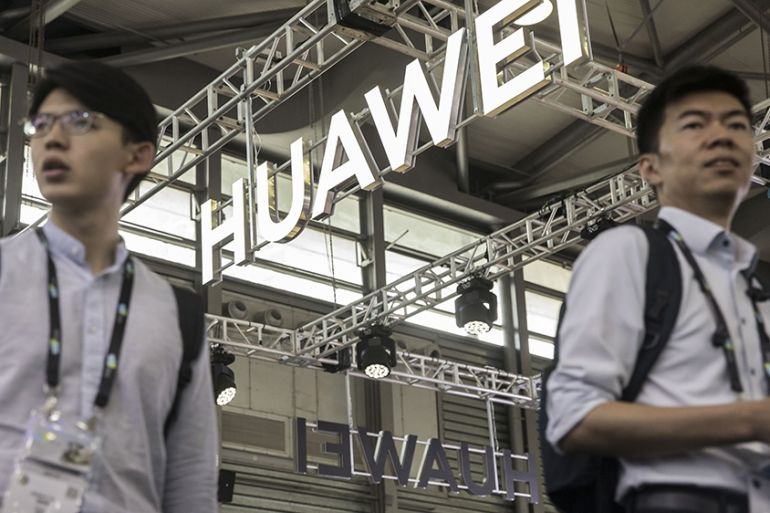Despite Trump blacklist, US company resumes shipments to Huawei
Micron shares rose on the news that it will continue its business dealing with the blacklisted Chinese firm.

Micron Technology Inc shares rose as much as 10 percent on Tuesday as the memory chip-maker said it had resumed some shipments to Huawei Technologies Co Ltd and still expected demand for its chips to recover later this year.
Chief Executive Sanjay Mehrotra said the Idaho-based maker of chips for smartphones and other devices resumed shipping some chips in the past two weeks after it reviewed the United States ban on selling products to the Chinese telecommunications company.
Keep reading
list of 4 itemsPolitics and convenience drive Mexico to be US’s top trading partner
Will Xi and Biden mend US-China relations at the APEC summit?
UK warns of Russia laying ‘sea mines’ to deter Black Sea cargo ships
“We determined that we could lawfully resume shipping a subset of current products because they are not subject to export administration regulations and entity list restrictions,” Mehrotra said on a conference call with investors.
“However, there is considerable ongoing uncertainty surrounding the Huawei situation, and we are unable to predict the volumes or time periods over which we will be able to ship products to Huawei.”
For Micron’s fiscal third quarter ended on May 30, the company beat analysts’ estimates for quarterly revenue and profit. Mehrotra said Huawei was Micron’s top customer and that the ban cost the company as much as $200m in missed sales during the third quarter.
Micron shares rose as much as 10 percent to $35.95 in after-hours trading after the results.
Micron and other chipmakers suspended shipments to Huawei after the US government added the world’s biggest telecoms equipment-maker and 68 affiliates on its “Entity List” on May 15.
The New York Times on Tuesday reported that Intel Corporation had also resumed shipping some products to Huawei. Intel declined to comment.
The Semiconductor Industry Association, of which Intel and Micron are both backers, noted that the US government had determined some chips do not fall under the sales ban.
“As we have discussed with the US government, it is now clear some items may be supplied to Huawei consistent with the Entity List and applicable regulations,” the group said in a statement. “Each company is impacted differently based on their specific products and supply chains, and each company must evaluate how best to conduct its business and remain in compliance.”
Stocks in chipmakers have fallen in the past few months as demand for smartphones has declined and prices for DRAM and NAND memory chips sank due to an oversupply, adding to concerns that a two-year-long semiconductor upswing was coming to a halt.
To soften the blow from the market glut, Micron reduced its output to prop up prices and has been investing more in its next generation of chips. The company said on Tuesday it will cut production by as much as 10 percent to help bring its supply in line with market demand.
But Micron executives said they expected demand for its chips to recover in the second half of calendar 2019. The company estimated fiscal fourth-quarter revenue of $4.3bn to $4.7bn, with a midpoint slightly below analysts’ estimates of $4.56bn, according to data from Refinitiv.
But the company has also been clamping down on capital expenditures, a closely watched metric in the cash-intensive chipmaking business. Micron said that fiscal 2020’s capital expenditures will be less than the $9bn it expects to spend in fiscal 2019, well below its initial plans to spend $10.5bn.
Net income attributable to Micron fell to $840m, or 74 cents per share, in the third quarter ended May 30, from $3.82bn, or $3.10 per share, a year earlier.
Revenue fell to $4.79bn from $7.80bn, beating analysts’ estimates of $4.69bn, according to IBES data from Refinitiv.
On an adjusted basis, the company earned $1.05 per share. Analysts were expecting a profit of 79 cents per share.